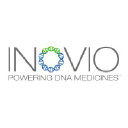Companies
Discover all trending biotech companies
Discover all trending biotech companies

Company Research Platform
Global Employees
317
This segment focuses on the research, development, and clinical trials of DNA medicines to prevent and treat infectious diseases. Inovio utilizes its proprietary DNA medicines platform, which involves designing and optimizing DNA sequences (SynCon) to target specific antigens. The CELLECTRA smart device technology facilitates the delivery of DNA plasmids into cells. This segment includes clinical trials for diseases such as Ebola, MERS, Lassa fever, and COVID-19. The patient impact is significant, as these vaccines aim to provide protection against life-threatening infectious diseases. Market positioning is based on the innovative DNA platform, and collaborations with organizations like CEPI and the Department of Defense support its development. Future opportunities include expanding the pipeline to address emerging infectious threats and improving vaccine efficacy. Regulatory aspects involve navigating clinical trial phases and seeking approvals from relevant health authorities. Partnerships with organizations like Advaccine and the International Vaccine Institute are crucial for clinical development and commercialization.
This segment concentrates on developing DNA medicines to treat and prevent diseases associated with the human papillomavirus (HPV), including precancers and cancers. Research and development activities involve designing SynCon sequences to target HPV antigens and conducting clinical trials for HPV-associated precancers (cervical, vulvar, and anal dysplasia) and cancers (head and neck, cervical, anal, penile, vulvar, and vaginal). The CELLECTRA delivery technology is used to administer the DNA plasmids. The therapeutic focus is on improving outcomes for patients with HPV-related conditions, potentially preventing cancer progression. Inovio's market position is based on its unique DNA medicine platform, and it collaborates with institutions like the National Cancer Institute and the University of Pennsylvania. Future opportunities include expanding the clinical pipeline and exploring combination therapies. Regulatory aspects involve clinical trial phases and seeking approvals from regulatory bodies. Partnerships with organizations like ApolloBio Corp. and Regeneron Pharmaceuticals support clinical development and commercialization.